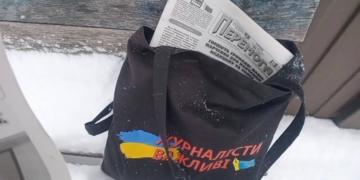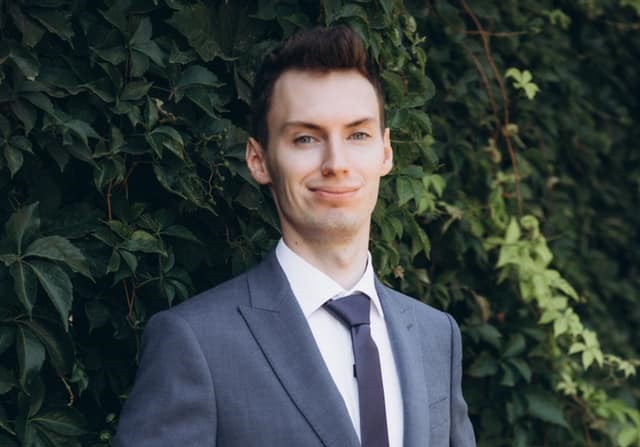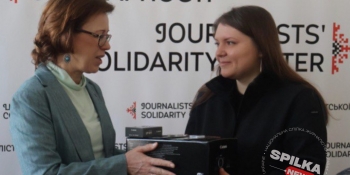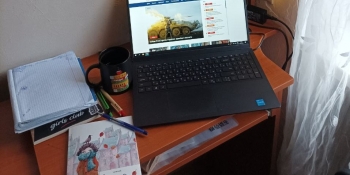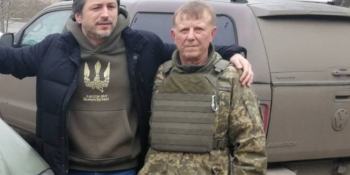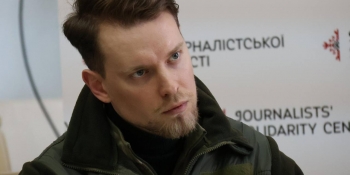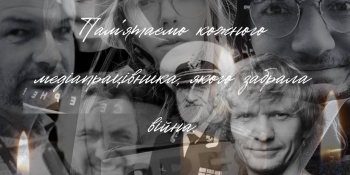Daniyil Vereyitin, a journalist from Donetsk, lived and worked for a year in the city of a million roses, which was occupied in 2014, but fear for his own life prompted him to move to Kyiv, where he settled, raised a family, and successfully worked as a sports journalist. But on February 24, 2022, a full-scale war returned to Daniyil the same sense of fear, only now not for himself, but for his family.
“It was clear that we had to leave Donetsk, but where for?”
“Life in Donetsk in 2014 was difficult. The city was in absolute chaos. There were difficulties with work, although I worked remotely. That is, I earned money, but I did not have the opportunity to spend it since somewhere from the beginning of October, it was impossible to withdraw cash or pay by card. And delivering money to collectors had become dangerous. Added to this were problems with light. Shells hit the transformer station in our neighborhood, and we were left without power for two weeks. There were also problems with the water supply because the pipes were constantly interrupted somewhere. A once powerful, industrial city was on the verge of a humanitarian disaster,” Daniyil recalls.
But all these problems seemed minor against the background of the fact that rallies in support of the Russian Federation began in the city, and more and more armed soldiers appeared on the streets.
“There was a certain percentage of people who sympathized with Russia so much that they were ready to take up arms. And when spontaneous pro-Russian rallies began, many ‘imported’ people appeared. I remember a story when they asked how to get to the drama theater, although people were standing right next to the theater building itself. Mass persecutions began in the city, so the radio station I worked for suggested that we cut off cooperation for security reasons. It was clear that we had to leave Donetsk, but where for? My university helped me: I had then completed four courses and had to continue my studies, and our university was relocated to Vinnytsia. Therefore, I and the rest of the students and decided that we should become the driving force that will bring this matter to an end. So, I submitted the documents, entered the master’s program, and moved there permanently in February 2015,” continues the journalist.
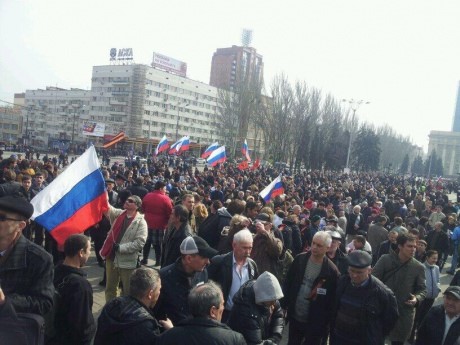
Photo: Novosti Donbasa
After studying, Daniyil received an invitation to an internship in Kyiv, where he stayed and began to build a career as a sports journalist. It would go up if it were not for the war.
“I woke up to the explosions at 6 in the morning”
“Somewhere around February 21, when Putin signed the papers recognizing the pseudo-republics, I realized that there would probably be an escalation in Donbas: the Russians would want to enter the administrative borders of the Donetsk and Luhansk Regions. But I could not predict that they would come from the Crimea, Kharkiv Region, and Belarus. Moreover, he could not assume that rockets would fly. But it happened,” Daniyil shares his memories.
On February 24 morning. The first explosions take place in Kyiv.
“I woke up to the explosions at 6 in the morning. We live in Sofiyivska Borshchahivka, and we heard pretty well the shell hit near the Zhuliany Airport, in the area of which an Iskander missile seemed to have hit a residential building,” recalls our interlocutor. “I immediately opened the telegram and saw Putin’s address, then our President Zelenskyy’s address. I opened the work chat, where there was the phrase “Colleagues, it has begun!” and I realized that something had to be done.”
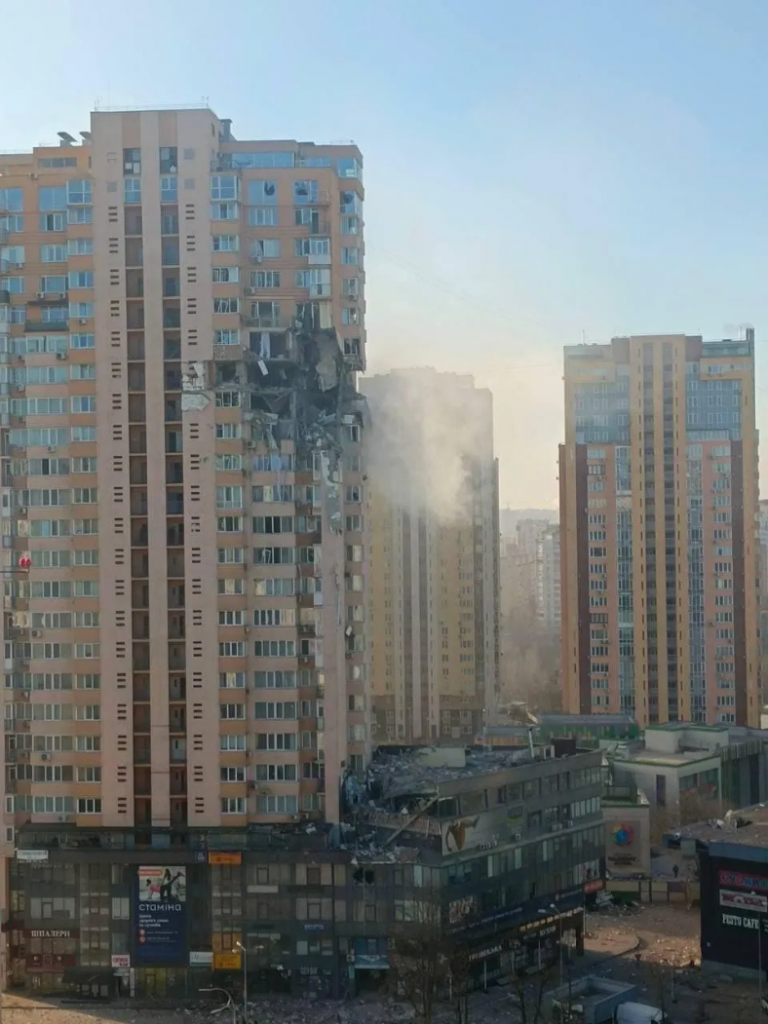
Photo: Channel 24
It was not possible to leave on the first day, as there were huge traffic jams on the roads. Therefore, based on the experience in Donetsk, Daniyil and his wife Mariya decided to wait. It was difficult because Mariya was carrying a child under her heart.
“The wife is pregnant, accordingly, something had to be decided, taking into account that some settlements in the Kyiv Region were already occupied. And we had one option: the volunteers went to Netishyn, in the Khmelnytskyi Region, and evacuated us free of charge, and from there we moved to the Rivne Region,” the journalist says.
“I was offered to go on an unpaid vacation or to retrain and work on a news channel. I chose the second”
The family lived in the Rivne Region for two months, all this time Daniyil tried to work remotely. But sports news was not on time, so the journalist had to retrain as a universal journalist and later change his job altogether.
“I worked at Focus and managed the sports department, but due to events in the country, the department suspended its activities. I was offered to go on unpaid leave or retrain and work on the news feed. I chose the second. At the end of April, we returned to the Kyiv Region, but the company began to experience financial difficulties due to the war. It’s no secret that mass media survive on advertising, and the advertising market stopped. Salary delays began and I simply changed the place of work,” says Vereyitin. “Now I am a journalist at the Ostrov news agency. Head of the agency Serhii Harmash and I have known each other since 2014: we met at a pro-Ukrainian rally, and after that, we kept in constant contact. I wrote articles for fees, and when I needed help, Serhii offered to join his team.”
“The conclusion of 2022 is one: we did survive”
In October, the happiest moment in Daniyil’s life was when he became a father. Now, the journalist recalls the difficult months with sadness and a smile at the same time: he says that the war helped him understand how valuable life is and how important his profession is.
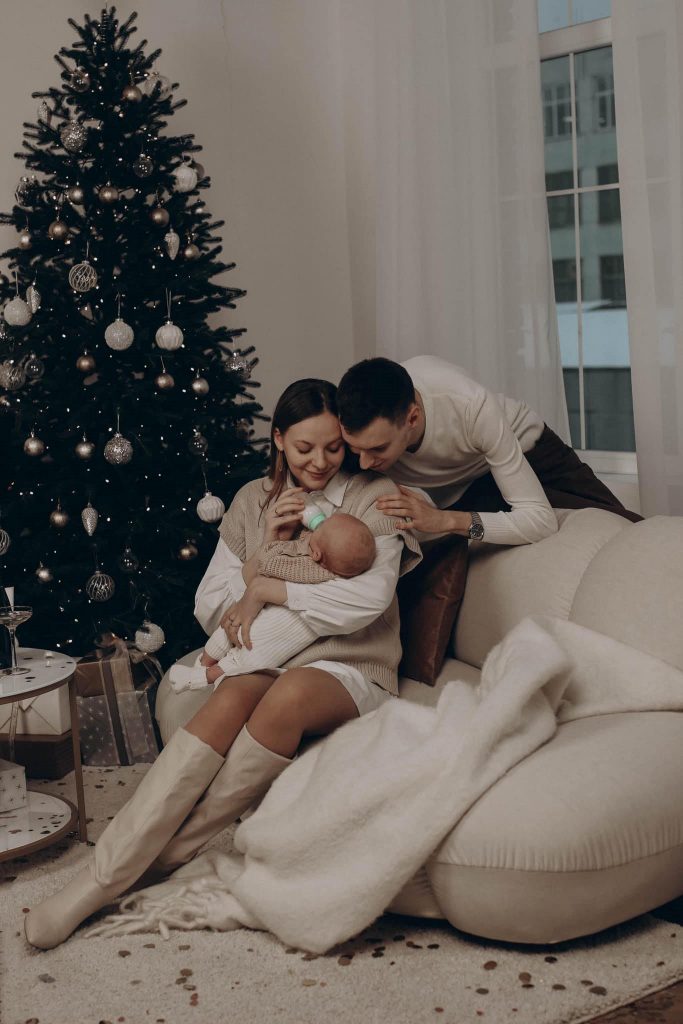
Photo: Daniyil Vereyitin
“The result of 2022 is one: we did survive. Unfortunately, not everyone is so lucky. We now know more, and understand more, but still, we must not forget about caution. This year, we realized how important the profession of a journalist is. Not only the journalists themselves understood but all citizens did. As for the future… For these almost nine years, I have often imagined what it would be like when Donetsk returns “home”, but, to be honest, I do not believe in either of the said scenarios. It will be somehow different than I imagined, but it will happen,” concluded the media person.
JOURNALISTS ARE IMPORTANT. Stories Of Life And Work In War Conditions is a cycle of materials prepared by the team of the National Union of Journalists of Ukraine (NUJU) with the support of the Swedish human rights organization Civil Rights Defenders.





